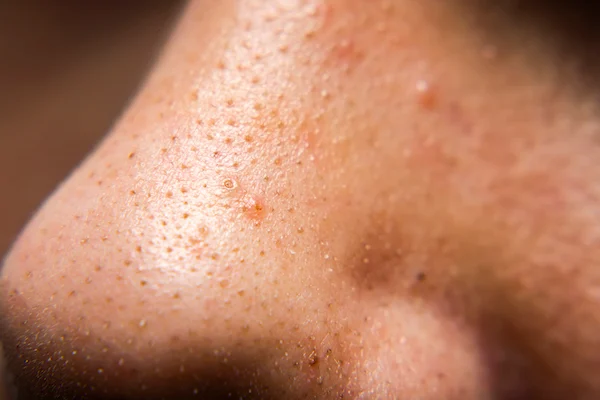In a world that increasingly emphasizes the importance of emotional well-being, one simple yet profoundly effective act stands out—hugging. While hugs are often viewed as a gesture of affection, their impact on mental and emotional health extends far beyond that. Hugging has been shown to offer numerous benefits that positively influence mood, reduce feelings of loneliness, and ease stress. On this Hug Day, mental health experts are shedding light on the deeper, scientifically-backed reasons why this everyday gesture holds so much power.
The Psychological and Emotional Benefits of Hugs
Hugging is often thought of as a physical act—an embrace between two individuals—but its effects run much deeper. When we hug, our bodies release oxytocin, commonly referred to as the “love hormone” or the “bonding hormone.” This hormone is known to promote feelings of happiness, reduce anxiety, and foster emotional connections. According to Archana Singhal, a counsellor and family therapist based in Delhi, hugs play a critical role in strengthening emotional bonds.
“When partners hug, it’s more than just physical touch. It strengthens their emotional bond, and the release of oxytocin fosters feelings of warmth, affection, and trust. It’s a natural mood booster,” she explains.
Beyond romantic relationships, hugs can also be incredibly beneficial for familial connections. A hug between a parent and child can offer comfort, reassurance, and a sense of safety, helping to regulate emotions in both the giver and the receiver.
Hugs as a Stress-Relief Mechanism
In today’s fast-paced, stress-filled world, many of us find ourselves overwhelmed by the demands of work, family, and social obligations. Stress can have a detrimental impact on both our mental and physical health, and finding ways to manage it effectively is crucial for maintaining overall well-being. One simple yet highly effective way to combat stress is through physical touch, specifically hugging.
Hugging reduces the production of cortisol, the hormone associated with stress, while simultaneously boosting levels of serotonin and dopamine—chemicals that play a role in mood regulation and happiness. Studies have shown that even brief, heartfelt hugs can lower heart rate and blood pressure, providing an instant sense of calm. Bhavya Shah, a clinical psychologist at Saifee Hospital in Mumbai, elaborates on how a hug can provide emotional relief during moments of stress.
“A good hug can calm your jitters and create a secure feeling. It signals to the other person that we are present and with them when words aren’t enough. It creates a space for trust and nurtures connections,” she says.
The physical act of hugging serves as a powerful nonverbal form of communication. Sometimes, when words fail us, a hug can convey feelings of empathy, support, and understanding. This can be particularly comforting in times of emotional distress or when navigating difficult situations, such as a personal loss or a challenging day at work.
Hugs as a Tool for Combating Loneliness
Loneliness, a growing concern in the modern world, can have serious implications for mental health. Whether due to social isolation, physical distance from loved ones, or simply a lack of meaningful connections, feelings of loneliness can lead to a range of emotional issues, including depression and anxiety. The absence of close, supportive relationships can contribute to a sense of emptiness, and loneliness can often feel overwhelming.
Fortunately, hugs offer a simple yet effective remedy for loneliness. When we embrace someone, we feel a sense of connection and belonging, which can counteract the negative effects of isolation. Hugs foster a deep emotional connection that reassures us that we are not alone. According to Deekshaa Athwani, a consultant clinical psychologist at Fortis Hospital in Mulund, Mumbai, the act of hugging is particularly effective in reducing feelings of loneliness.
“Hugging strengthens psychological resilience by instilling a sense of belonging and support. Physical touch can combat feelings of loneliness and isolation, especially during times of emotional distress,” she says.
Athwani further explains that regular affectionate touching and hugging can serve as a form of emotional regulation, helping to alleviate negative emotions and improve mental health over time. The feeling of being embraced by a loved one can also evoke a sense of security, promoting feelings of stability and peace.
Hugs and Their Role in Building Resilience
Hugs are not just about providing immediate comfort; they also help to build long-term emotional resilience. Emotional resilience refers to the ability to adapt to stress, overcome adversity, and bounce back from challenging situations. Building emotional resilience is crucial for mental health, as it allows individuals to cope with life’s ups and downs more effectively.
Hugging plays a vital role in this process by offering consistent emotional support. When we receive a hug, it triggers the release of neurochemicals that help regulate our emotions and reduce feelings of anxiety. This not only promotes short-term comfort but also enhances our ability to cope with future stressors.
Regular physical affection, such as hugging, reinforces our sense of trust and security, which is essential for emotional well-being. This sense of safety provides a foundation for resilience, allowing individuals to face life’s challenges with greater strength and confidence.
The Science Behind Hugs: What Happens in the Brain
The impact of hugs on mental health is not just anecdotal—it is scientifically supported. Neuroscientific studies have shown that physical touch, including hugging, triggers a cascade of positive physiological and psychological effects. When we hug, our brains release a cocktail of neurochemicals, including oxytocin, serotonin, and dopamine. These chemicals are responsible for promoting feelings of happiness, reducing stress, and enhancing overall mood.
Oxytocin, in particular, is known to play a critical role in emotional bonding and social connection. It fosters a sense of trust and affection, which is why hugs are such an important part of human relationships. Oxytocin also helps to regulate the body’s stress response, making it easier to manage difficult emotions and anxiety.
Additionally, hugging stimulates the release of serotonin and dopamine, which are associated with positive emotions and feelings of well-being. These chemicals are often referred to as “feel-good” neurotransmitters, and their release during a hug contributes to the euphoric sensation often experienced after physical affection.
Hugs and Their Role in Strengthening Relationships
The benefits of hugging extend beyond individual well-being; they also contribute to the health of relationships. Whether between partners, family members, or close friends, hugging can significantly strengthen the emotional bond between individuals. As Singhal points out, frequent hugs between couples contribute to the overall health of a relationship by reinforcing the sense of partnership and mutual care.
“In times of stress or conflict, the reassuring touch of a hug can offer comfort, helping couples navigate challenges together,” she says.
Hugs can also improve communication between partners by providing a nonverbal way to express emotions. In a relationship, physical touch can convey love, affection, empathy, and support in ways that words may not fully capture. This nonverbal communication strengthens the emotional connection between individuals, making it easier to express vulnerability and deepen intimacy.
The Power of a Simple Hug
While hugs are often seen as simple gestures, their effects on mental health and emotional well-being are profound. From reducing stress and anxiety to combating loneliness and strengthening relationships, hugging is a powerful tool for improving overall quality of life. As mental health experts have pointed out, incorporating regular hugs into daily life can have long-lasting benefits for emotional health.
This Hug Day, take a moment to embrace the people you care about and reap the mental health benefits of this simple, yet powerful gesture. Whether it’s a hug for a partner, a family member, or a friend, remember that the power of a hug goes beyond physical touch—it has the ability to nurture relationships, promote emotional well-being, and create a sense of connection in a world that often feels disconnected.










